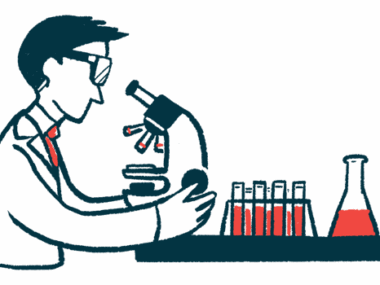Bluebird’s CAR T-cell Therapy Shows Promise in Advanced Multiple Myeloma Patients
Written by |

Patients with advanced multiple myeloma may benefit from bluebird bio’s novel CAR T-cell therapy bb2121, according to data presented at the 28th EORTC-NCI-AACR Molecular Targets and Cancer Therapeutics Symposium in Munich, Germany.
The study, “Clinical remissions and limited toxicity in a first-in-human multicenter study of bb2121, a novel anti-BCMA CAR T cell therapy for relapsed/refractory multiple myeloma,” presented by Yi Lin, MD, PhD, assistant professor of medicine and oncology, Mayo Clinic Division of Hematology in Rochester, Minnesota, revealed promising anti-tumor activity, with several patients exhibiting responses to treatment, including complete responses.
“We are pleased that these early data from our ongoing Phase 1 study of bb2121 demonstrate objective anti-tumor responses in heavily pre-treated patients with multiple myeloma, with all patients in the 15.0 x 107 and 45.0 x 107 CAR+ T cell dose cohorts achieving responses, including among them, patients with stringent complete responses and elimination of minimal residual disease,” David Davidson, MD, bluebird bio’s chief medical officer, said in a press release.
“We are also encouraged by the safety profile to date, particularly the lack of severe cytokine release syndrome or neurotoxicity. In light of these positive data, and thanks to the multiple participating clinical sites and centralized manufacturing infrastructure we and our partner Celgene have built for this program, we anticipate efficiently completing the dose escalation stage of the trial and initiating the expansion cohort,” Davidson said.
The first-in-human Phase 1 study (NCT02658929) is a two-part, open-label, multicenter trial assessing the safety and effectiveness of the anti-BCMA CAR T-cell therapy bb2121 in patients with relapsed or refractory multiple myeloma. Participants were treated with a median of six prior therapies.
The study’s primary endpoint is incidence of adverse events and abnormal lab test results such as dose-limiting toxicities. Secondary endpoints include overall response rate, including partial responses, very good partial responses, and complete responses, according to the International Myeloma Working Group (IMWG) Uniform Response Criteria for Multiple Myeloma.
At the time of data cut-off, in November 18th, the study had already enrolled 11 patients dosed in four dose cohorts. All patients in the mid-dose cohorts responded to the therapy, with two patients in the second dose cohort showing minimal residual disease-negative complete responses.
Importantly, the treatment safety profile was promising, with no dose-limiting toxicities and no Grade 3 or higher neurotoxicities or cytokine release syndrome being reported by any patient.



